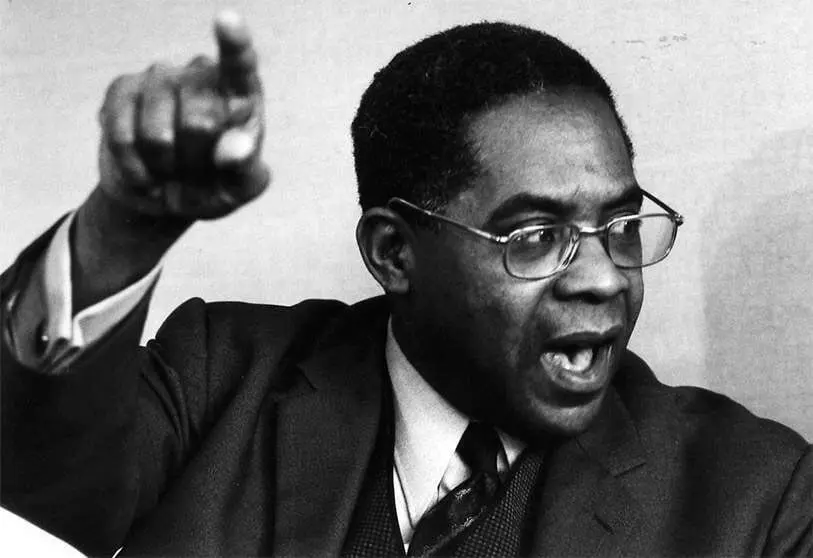The Proud Negritude of Césaire, Shengor and Damas

The truth of Africa, of its multiple dimensions, is still being generated in the intricacies of our own Western culture. It is revealed when one least expects it in the sharp planes of a mask or ebony carving, in the colourful scenes of paintings or canvases or, as in this case, between the pages of a book, such as 'Historia de la literatura negroafricana', (History of black African literature), by Lilyan Kesteloot, the daughter of the captain of a steamship that sailed on the Congo River and who has drawn in its many pages the relatively recent origins of the letters of the nearby continent.
The volume, translated by Casa África, tells how, alongside the historical avant-garde movements of the beginning of the last century in Paris, first Dadaism and then Surrealism, of Tristan Tzara and André Breton, respectively, coexisted personalities and movements that sought to introduce black identity as a diverse and alternative value to what was established in the society of the time, parallel to the energetic and rebellious shake-up of "good manners" that the Dadaists delivered, like a kick in the ass, in their now mythical Dada Manifesto 1918.

Aimé Cèsaire, Emmanuel Dongala, Leopoldo Sédar Shengor and Cheikh Hamidou Kane, among others, are now considered classics on the world literary scene, but at the time they were young emigrants who experienced the systematic ostracism imposed by the whites, i.e. the forced acceptance of white superiority, the forced acceptance of the dogmatic superiority of the planet's race par excellence, which translated into quotations that described the established order as an "abominable system of impositions and restrictions, of extermination of love and limitation of dreams, generally known as Western civilisation".

It was around this time that the Negritude movement emerged, founded by Senghor, Césaire and Damas, which gave Africans and their descendants - both continental Africans and those of the slave-owning diaspora to America and Europe - a way of being their own, and dignified this quality, not a burden. By extension, it values as legitimate, and as valid as any other, their customs and intellectual, creative and artistic manifestations; in a well-constructed raison d'être that is consistent with the history of the peoples from which they came.
Today Africa has Nobel Prize-winning writers, first-class international musical and visual artists, notable intellectuals and statesmen in most of the world's forums, and there has even been a black president of the world's leading power, not to mention the sportsmen and women who often form the backbone of the most renowned teams in any of the disciplines concerned throughout the world.

The day will come when blackness will no longer be a burden for African ethnicities, but a guarantee of many of the values and qualities that Western civilisations have left by the wayside in their well-known race towards globalisation. Gone are the not-so-distant euphemisms of "brown" and "coloured man or woman" to avoid calling black people by their name, a term of which they have never ceased to be proud.










